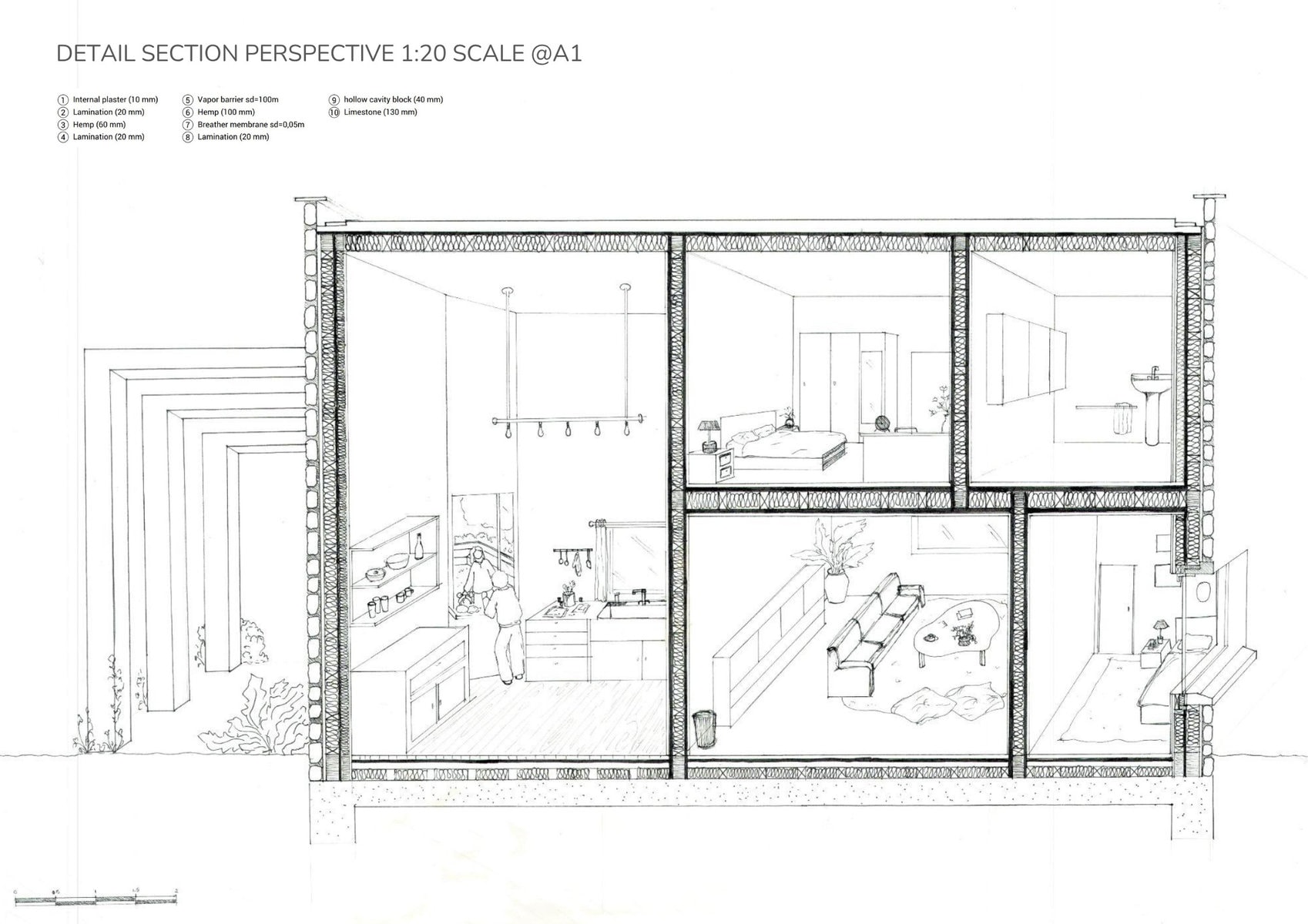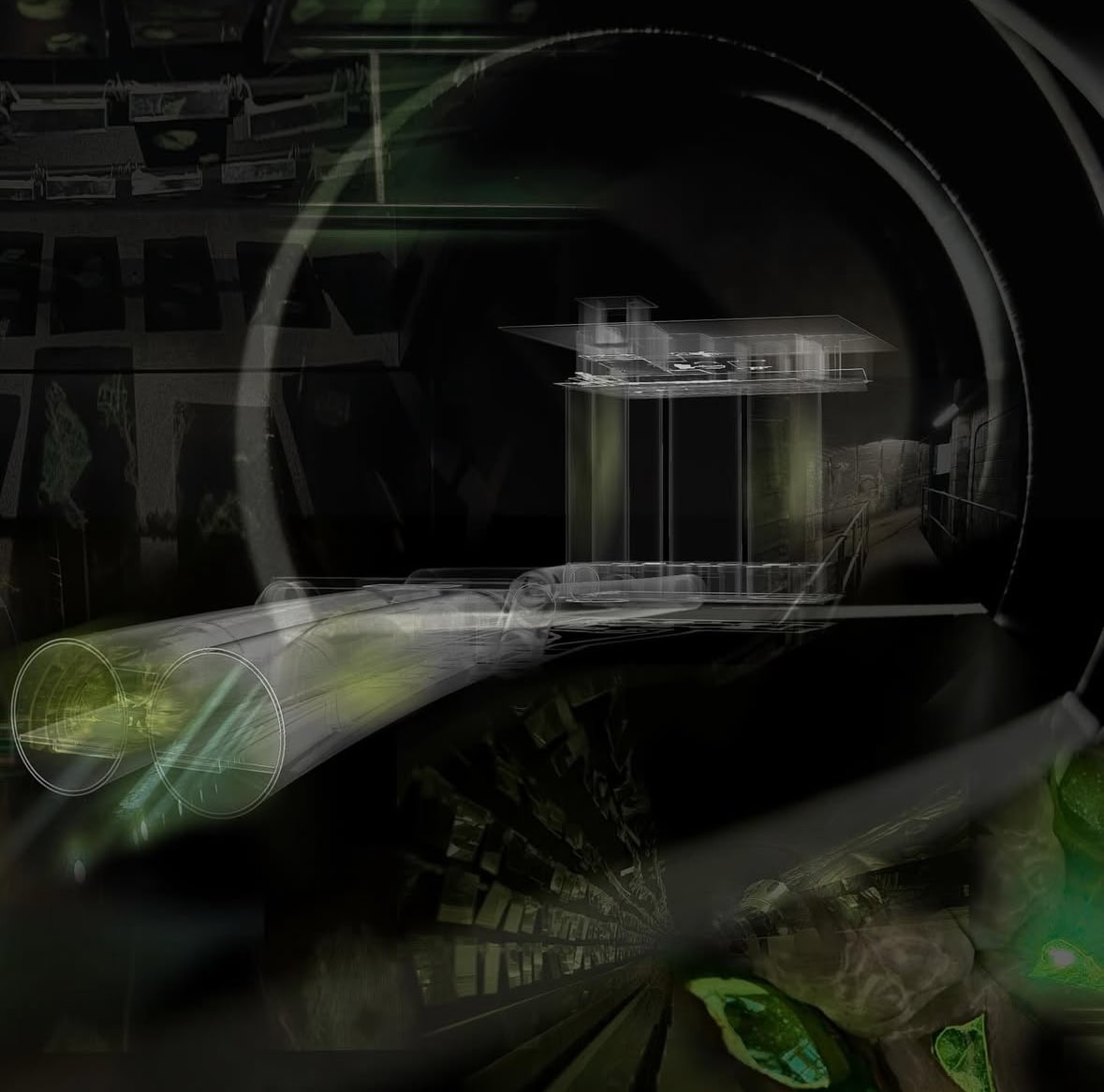Warmth in the Kitchen: A Village Baker’s Dream (H2)
Beckley, a serene countryside haven just outside the urban bustle of Oxford, becomes the stage for a quietly transformative architectural intervention in the hands of recent Oxford Brookes University graduate, Adiba Hossain. With a RIBA Part 1 accreditation, Adiba’s educational background not only speaks to her deep understanding of architectural principles but also reveals her passion for social relevance and design integrity. Her final year project—a home-bakery for Lorenzo, a former city-dweller seeking community and connection—celebrates a renewed vision of rural life, marrying domestic pleasure with a central sense of belonging.
The proposal resonates with current architectural discourse, where emphasis on community, wellness, and sustainable place-making takes center stage. In this project, the boundaries between personal and communal space dissolve in favor of a setting that encourages social exchange. By harnessing the simple yet universally adored act of baking bread, Adiba’s design becomes a focal point for the whole village—blending the tastes, sights, and social interactions of a rural lifestyle with a forward-thinking approach to architecture.
The Visionary Behind the Project (H3)
Graduating from Oxford Brookes University with distinction, Adiba Hossain exemplifies the ethos of a new generation of architects committed to contextually aware and inclusive design. Her studies have been grounded in rigorous technical training, complemented by a philosophy that values human connections and cultural expressions. While architecture school introduced her to traditional methods of drafting and technology-based design processes, it is her creative adaptability that truly emerges in this final project. Carefully weaving her architectural expertise with her love of community, Adiba chose a concept that would unite both spheres.
Beckley’s quiet lanes and distinct sense of history offer a prime setting for exploring the role architecture plays in shaping social habits. Adiba’s background at a university known for cultivating forward-thinking architects has instilled in her a clear sense of design responsibility. Her mentors at Oxford Brookes continually stressed the importance of serving communities, and this lesson resonates strongly throughout her work. In bridging the rural-urban divide, she fosters a sense of belonging that transcends the property’s physical footprint.
A Bridge Between Home and Community (H3)
Key to the success of any community-focused architectural plan is the idea that buildings are not merely functional containers but living organisms that adapt to, and interact with, their environments. In Adiba’s design, the complexity of the home-bakery is realized through the dynamic interplay of private and public realms. The project is anchored by a welcoming bakery space on the ground floor, designed to draw in passersby with the inviting scent of freshly baked bread.
A shared open-plan layout accommodates both daily domestic life and opportunities for communal gatherings. Customers can witness the baking process while effortlessly connecting with Lorenzo, the charismatic baker who found his calling in this idyllic setting. High counters that double as serving surfaces, airy windows to let in plenty of natural light, and a flexible seating area for impromptu chats or more structured workshops set the stage for a vibrant community hub. The project also integrates a small herb garden adjacent to the kitchen, underscoring the value of homegrown ingredients and a local supply chain, while delivering an authentic farm-to-table aesthetic that supports the baker’s rural living ethos.
Above and behind this shared central space lies the private residence where Lorenzo can retreat after a day’s work. Here, the design language shifts subtly, emphasizing comfort and warmth without severing the connection to the village. Carefully placed windows frame views of the rolling countryside, ensuring that, even in solitude, the occupant remains linked to the natural surroundings.
A Focus on Sustainability and Well-Being (H3)
From day one, Adiba’s project considered both environmental impact and occupant well-being. Using vernacular materials common to the area, such as local timber, brick, or reclaimed stone, she honors the village’s traditional architectural style while reducing carbon footprints. In Beckley, older structures stand as testaments to a time when buildings harmonized more seamlessly with the environment. Adiba’s design revives this tradition with thoughtful insulation, passive ventilation strategies, and an emphasis on minimizing energy consumption.
Natural light cascades through oversized windows, eliminating the need for artificial illumination during the day, and the building’s orientation maximizes solar exposure for warmth in the cooler months. Rainwater harvesting, blended into the overall design, manages water usage efficiently, enhancing the project’s eco-credentials. A composting system recycles bakery and kitchen waste, returning nutrients to the garden. These integrated strategies form a holistic approach, reminding the community that sustainable living is not a luxury but rather an attainable ideal.
Forging Connections Beyond the Drawing Board (H3)
A critical outcome of any architecture project is its ability to evolve and remain relevant long after construction is complete. As a place for social gatherings and cultural exchange, the home-bakery must prove resilient to changing needs. Adiba envisions an adaptable space, allowing it to transition between daily tasks—like bread-making and coffee-hour chats—to occasional events such as weekend markets or small festivals. The project’s greatest success perhaps lies in its capacity to enrich the broader network of local producers, artisans, and residents, strengthening a sense of rural community life.
This emphasis on relationships extends to Adiba’s own professional journey. The completion of this project marks the start of her career as an architect determined to transform how communities interact with the built environment. She aims to continue collaborating with individuals who share her ideals, whether they are experienced engineers or budding pastry chefs. Expanding her project’s design ideas into similarly tight-knit contexts around the UK could serve as a model for future architectural endeavors that elevate local culture and commerce.
Where to Find Adiba (H3)
For those intrigued by Adiba’s work, there are several ways to reach out. She is active on LinkedIn, where she showcases her portfolio and discusses ideas with other professionals. Her email (adibah0ss04@gmail.com) is open to inquiries and opportunities—particularly for those with an interest in design solutions that foreground social engagement and sustainability. An emerging voice in the architectural world, Adiba continues to map out her next move, fully confident in the knowledge that innovative design solutions can spark vibrant community life.
With her degree in hand and RIBA accreditation under her belt, Adiba embodies a new breed of architects affirming the power of design to unite people. In the unassuming village of Beckley, her project has reimagined whether a home-bakery might be more than just a workplace—it can be the heart of a community, a sanctuary for shared experiences, and a testament to how architecture can revive rural living through the simple joy of breaking bread together.







Add a comment